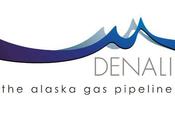Alberta Oil
Pipelines have never been so popular. For years, the steel conduits followed unseen routes. They carried rivers of crude oil beneath city and town alike, rarely drawing so much as a passing thought from those who depended on their valuable cargo. Today, proposals by Kinder Morgan Canada, Enbridge Inc. and TransCanada Corp. face fierce opposition in a bid to carry more Canadian crude oil – chiefly increased oil sands production – to new markets.
Excerpt from Alberta Oil interview with Nlorthern Gateway President John Carruthers
The primary markets where we would see the most value are China, Japan, South Korea and Taiwan. Now once the oil reaches tidewater it can access any market. We would see crude going periodically to different markets. But those four markets in particular have strong demand. The proximity of Canada to those markets and the fact that they can process Canadian crude is all very positive. Potentially the oil could also go to California.
 Alaska Dispatch covers the plans, politics and problems of the Denali natural gas pipeline from 2003 until the cancellation of the project.
Alaska Dispatch covers the plans, politics and problems of the Denali natural gas pipeline from 2003 until the cancellation of the project.